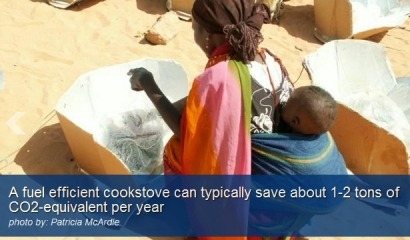
UNIDO Kenya National Expert on Renewable Energy, Paul Njuguna, told the news agency that UNIDO would collaborate with Kenya to reduce the African state’s heavy reliance on fuel wood and agricultural residue for cooking.
“The UNIDO and Kenya government project which aims to move the country away from traditional wood stoves should be in place by June this year,” Njuguna said on the sidelines of the East African Strategic and Planning Workshop for Clean Cook Stoves, which brought together more than 100 stakeholders from east Africa from government, private and the donor community to boost the uptake of clean energy efficient cook stoves.
According to Njuguna, over 68 percent of the population in Kenya use biomass for cooking, whilst Kenya’s Ministry of Energy estimates that up to 95 percent of the energy consumed in rural areas is in the form of fuel wood, agricultural residue and animal waste. “The five year strategy hopes to bring an end the current uncoordinated efforts in the country aimed at scaling up adoption of clean energy especially by the poor both in rural and urban areas,” commented the UNIDO official.
The project in Kenya will introduce strategies to help the Kenyan population adopt clean cooking technologies within the five year period, including the production of biomass such as charcoal for use in cooking in a sustainable and efficient way.
“Current methods of production of charcoal have efficiencies of around ten percent but at the end of the program we hope to achieve at least 40 percent efficiency,” he added. “We hope to identify farmers who will grow trees commercially which will be the source of sustainable biomass.”
These trees will then be bought by processors who will use efficient kilns which have a conversion rate of above 40 percent up from the current 10 percent, to produce charcoal.
“Low efficiency devices contribute to deforestation and climate change,” he said. As a result, he noted, that the price of charcoal has doubled in the past year due to dwindling forest resources,” Njuguna said.
German Development Cooperation (GIZ) is just one organisation that is helping African’s to replace traditional, inefficient stoves with improved devices. GIZ’s leader, Anna Ingwe, said that her organization had helped over 1.3 million households saving 1.4 million tonnes of trees annually as a result of the new technology.
“All stakeholders must work to overcome the market barriers that currently impede the manufacture and adoption of clean cook stoves especially among the low income segment of the population,” the GIZ official said.
Global Alliance for Clean Stoves Executive Director, Radha Muthaiah, said that approximately 2 million African households have switched to efficient cooks stoves, but called for governments to prioritize clean cooking solutions “as a tangible and practical household energy solution”.
“Efforts should be directed to address the lack of knowledge among the general population as well as the environmental and health benefits,” she said. “Regional governments should work together to help develop internationally recognized standards that clearly define what is a clean and efficient cook stove.”
For additional information:

